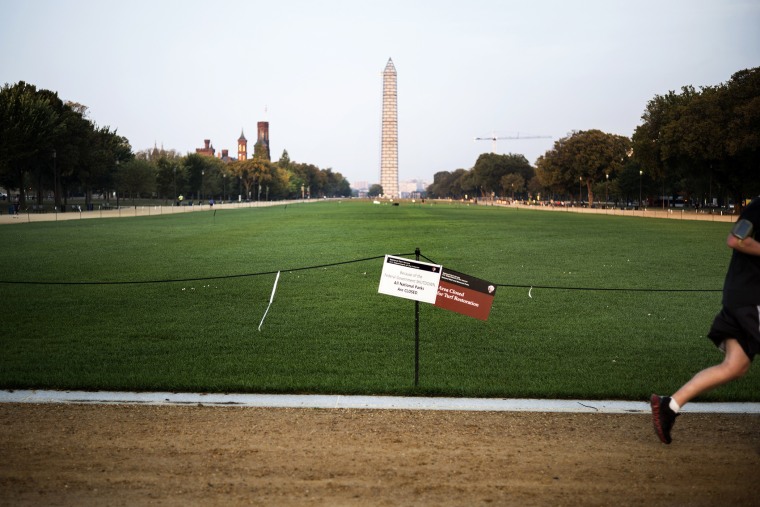There's never been a federal government shutdown when one party controls both the White House and Congress. That may change this week.
As Rachel noted on the show the other day, when there's a possible shutdown looming, the political world is ordinarily fascinated by the drama. It's a testament to just how frenetic the current environment is that the federal government will run out of money in two days, and much of the country probably isn't aware of the pending deadline.
The first step in preventing the government from shutting down will be a spending bill in the House. Politico reports that Republican leaders appear to have settled on a plan.
House Republican leaders have promised conservatives that they won't grant concessions to Democrats to get enough votes for a stopgap spending bill -- gaining GOP support but also raising the specter of a government shutdown later this month.
As John Boehner can attest, House Republican leaders are in an awkward position. There's a sizable contingent of far-right House members who don't like to vote for spending bills, pushing GOP leaders to turn to Democrats for votes. In this case, however, Dems have a lengthy list of priorities they'd love to see tied to the temporary spending bill -- called a "continuing resolution" (or CR) -- which Republicans naturally oppose.
So, as of yesterday, House GOP leaders said they won't turn to Democrats for support, and will instead work with far-right members to pass a spending measure and prevent a shutdown.
Problem solved? Of course not. That bill would go to the Senate, where it'll need 60 votes -- which means persuading at least eight Democratic senators to vote with all 52 Senate Republicans. If the House passes a partisan, GOP-centric measure, Dems in the upper chamber will balk and the odds of a shutdown will improve.
In case this weren't quite messy enough, Democrats aren't exactly united on a strategy. The congressional minority party seems to realize that they have some leverage in the process -- Republicans can't avoid a shutdown without some Democratic votes -- but Dems have all kinds of demands, ranging from health care to Dreamer protections, and there's no real agreement within the party as to what to demand in exchange for votes on a spending bill.
Donald Trump, meanwhile, seems to be playing no constructive role in the process whatsoever, and he's reportedly told allies he thinks a government shutdown would be good for him.
As things stand, the House is scheduled to vote tomorrow on its spending bill, the same day the White House hosts a conversation with Congress' bipartisan leadership about keeping the government's lights on.
If the House passes a "clean" measure -- simply extending current spending levels for two weeks -- it's possible Dems will largely approve, making no real demands, and hold their fire for the next round of talks. It's also possible Democrats will expect something in return for preventing a shutdown.
All of this will play out very quickly, since Republicans have waited until the last minute to find a solution. Based on my best guess, I'd put the likelihood of a shutdown at about 35%, but that could change based on how things unfold on Capitol Hill today.
